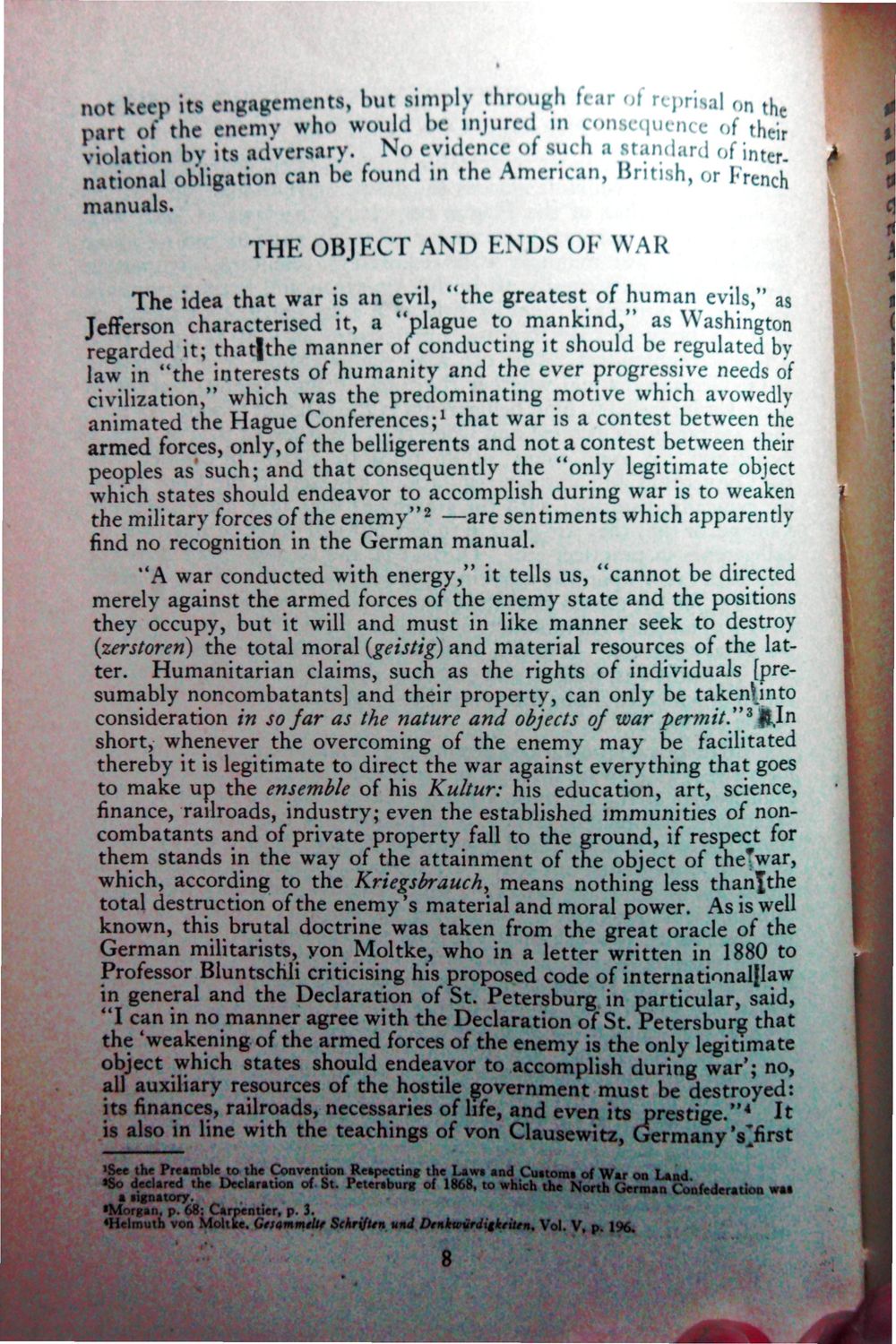| |
| |
Caption: War Publications - WWI Compilation 1923 - Article 14
This is a reduced-resolution page image for fast online browsing.

EXTRACTED TEXT FROM PAGE:
• not keep its engagements, but simply through fear oi reprisal on the part of the enemv who would be injured in consequence of their violation bv its adversary. No evidence of such a standard of inter. national obligation can be found in the American, British, or French manuals. T H E OBJECT AND ENDS OF WAR The idea that war is an evil, "the greatest of humanevils," as Jefferson characterised it, a "plague to mankind/* as Washington regarded it; that|the manner of conducting it should be regulated by law in "the interests of humanity and the ever progressive needs of civilization/' which was the predominating motive which avowedly 1 animated the Hague Conferences; that war is a contest between the armed forces, only,of the belligerents and not a contest between their peoples as' such; and that consequently the "only legitimate object which states should endeavor to accomplish during war is to weaken 2 the military forces of the enemy" —are sentiments which apparently find no recognition in the German manual. A war conducted with energy," it tells us, "cannot be directed merely against the armed forces of the enemy state and the positions they occupy, but it will and must in like manner seek to destroy (zerstoren) the total moral (geistig) and material resources of the latter. Humanitarian claims, such as the rights of individuals [presumably noncombatants] and their property, can only be takenUnto 3 consideration in so far as the nature and objects of war permit." jftln short, whenever the overcoming of the enemy may be facilitated thereby it is legitimate to direct the war against everything that goes to make up the ensemble of his Kultur: his education, art, science, finance, railroads, industry; even the established immunities of noncombatants and of private property fall to the ground, if respect for them stands in the way of the attainment of the object of theVar, which, according to the Kriegsbrauch> means nothing less thanjthe destruction the enemy *s material and moral Dower. As is well brutal Moltke Professor Bluntschli criticising his proposed code of internationaljlaw in general and the Declaration of St. Petersburg in particular, said, "I can in no manner agree with the Declaration of St. Petersburg that the 'weakening of the armed forces of the enemy is the only legitimate object which states should endeavor to accomplish during war'; no, teachings of von Clausewitz JScc the Preamble to the Convention Respecting the Lawt and Customs of War on Land *So declared the Declaration of St. Petersburg of 1868, to which the North German Confederate* a signatory. — •Morgan, p. 68; Carpentier, p. 3. *Helmuth von Moltke. Gesammtltr Schrifttn und Denkwurdigkriten, Vol. V, p. 1%. %i 8
| |